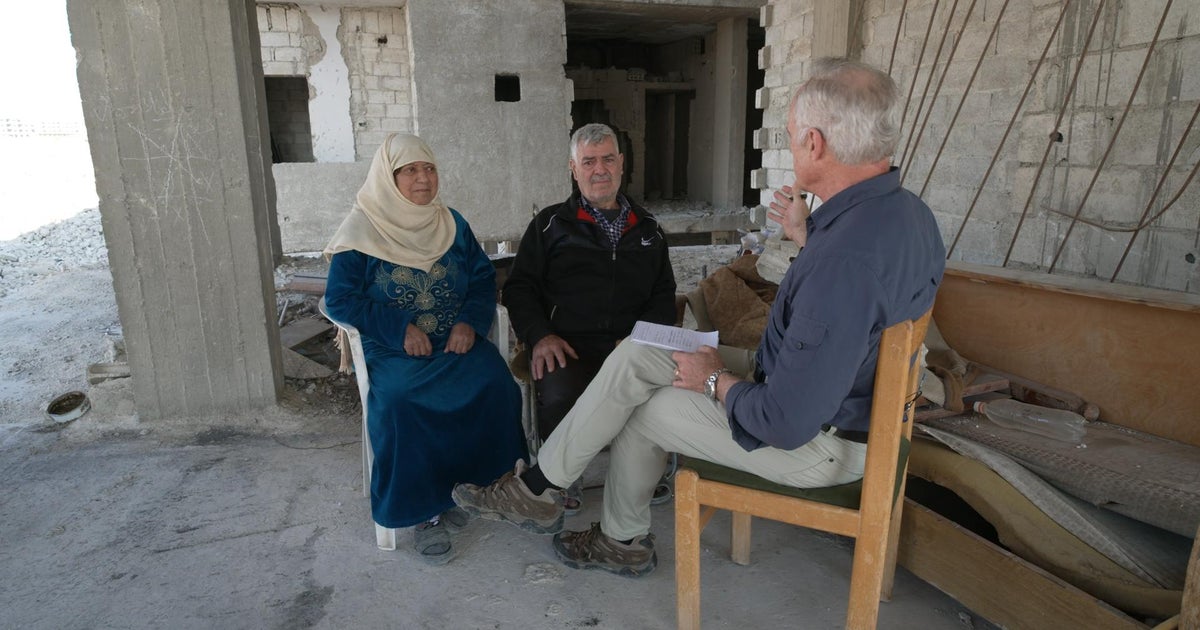Are your kids being radicalized online?
REVERB is a new documentary series from CBS Reports. Watch "Extremists Next Door" in the video player above.
Joanna Schroeder, a writer and mother of three, was looking over her son's shoulder as he scrolled through his Instagram "Discover" feed. When a meme depicting Hitler appeared, he quickly liked it and kept scrolling. Schroeder, confused, stopped him and had him scroll back. Her son had thought the meme had an anti-Hitler message, but on closer inspection — and to his horror — the meme was actually pro-Hitler. A seemingly harmless scroll through Instagram immediately turned into a learning moment for both mom and son.
"We read it and he was horrified," she recalled. "Of course he unliked it. And I was like, 'You have got to slow down and read what you're liking, because your friends can see that you liked this and I know you don't believe that way.' ... It was a big moment for both of us."
Beyond that, Schroeder said, "It opened my eyes to a bigger system — a bigger system at work of these online personalities who are normalizing hate in very insidious ways, almost always with humor."
Acts of violence and domestic terrorism tied to white supremacy are largely committed by individuals among the same demographic: young white men. For parents with sons like Schroeder to prevent their boys from going down the path of right-wing extremism, it's important to understand why boys fall into it in the first place.
"I've now worked with over 100 individuals who have been involved in extremist movements, hate movements, and have turned their lives around. When I look at their pathways, their stories as to what got them into the movement, and also what got them out, there's a common thread throughout," said Vidhya Ramalingam, co-founder of Moonshot CVE, an organization that combats violent extremism. "They're seeking a community, they're seeking some sense of belonging, and these groups and movements provide them that, even online."
Depression and anxiety can play just as large a role in an individual's radicalization as loneliness and isolation. In college, Caleb Cain became severely depressed and dropped out. When he returned home he was convinced he could help himself through self-help videos online, which is when he discovered Stefan Molyneux, a vocal far-right white nationalist. Cain soon looked to Molyneux as a father-figure and was drawn into that world.
"What I can say is anybody that starts to believe that the world is crumbling and falling apart and that there's no hope and things are getting worse and worse, a lot of those people do turn to radical behavior," said Cain, who has since renounced those views and become an outspoken critic of the alt-right.
Parents, meanwhile, are searching for ways to make sure their own kids don't go down the same dangerous road. Schroeder takes a hands-on approach to parenting her sons, championing intervention and education. She believes kids' internet usage should not be severely censored; instead, roaming the internet with parental supervision can be an extremely important learning tool.
"I firmly believe that kids should be allowed to use adult YouTube, not just [YouTube Kids], when their parents are with them," she said. "I think kids should be exposed to the internet younger than the parents may want them to be so that they can get those experiences online while they're supervised and also while they're young enough to be interested in our opinions."
When it comes to the use of hurtful, racist or anti-Semitic language, Schroeder says what's most important is to have a level-headed conversation with kids make sure they are a contributing part of the conversation, and avoid shaming tactics.
"Instead of pushing your kids away, invite them into a conversation," she said. "Like, 'What do you think that means? … To me, this is what it means. What does it mean to you?' And invite them to have empathy for the person who is harmed by it, without shaming them. Because ... human nature reacts to shame with anger. And anger is the reaction that white supremacy feeds on."
Schroeder stressed throughout her interview with CBS Reports that in sensitive conversations revolving around white supremacy and alt-right narratives, parents and their kids should work together and learn from each other.
"This is a really key lesson for parents: Our kids have things to teach us. We don't know more about the internet than they do. But there are things we know more than they do about. There are things that we know more about than they do," she said. "So I can take what I know about how people are exploited, I can take what I know about propaganda, I can take what I know about racism, and I can go to my son — who knows more than me about how Instagram works and he knows more than me about YouTube and YouTubers — and we can collaborate in how to help solve these bigger problems, rather than me trying to tell him he's doing it wrong."





